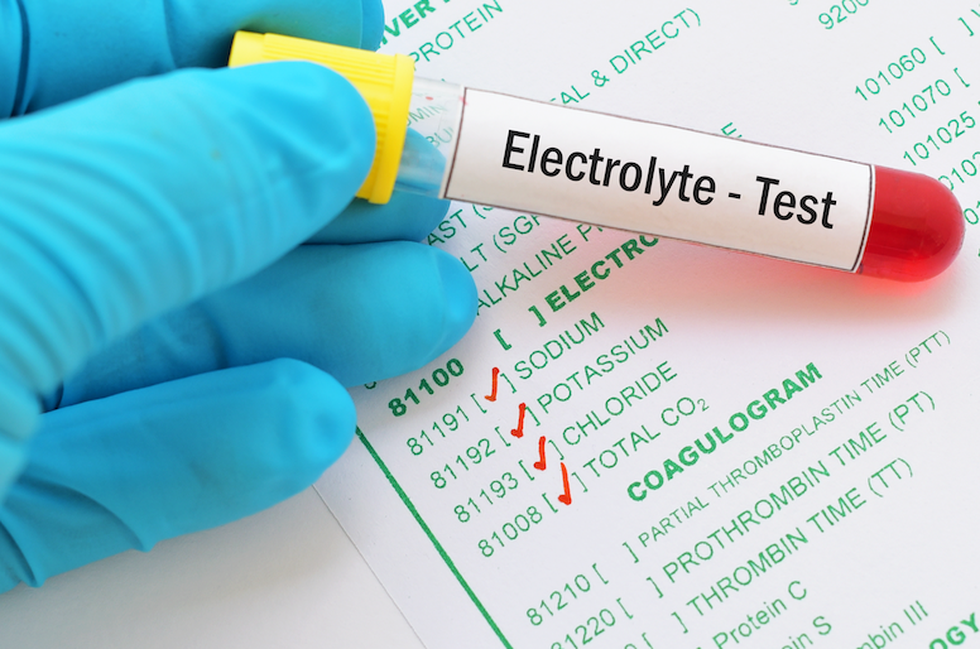About Electrolyte:
- Electrolytes are minerals that give off an electrical charge when they dissolve in fluids like blood and urine.
- The most familiar electrolytes are acids, bases, and salts which ionize when dissolved in such solvents as water or alcohol.
- Many salts, such as sodium chloride, behave as electrolytes when melted in the absence of any solvent; and some, such as silver iodide, are electrolytes even in the solid state.
- Your body makes electrolytes. You also get these minerals from foods, drinks, and supplements.
- Electrolytes in blood, tissue, urine and other body fluids play a critical role in balancing body fluids, regulating your heart rhythm, and supporting nerve and muscle function.
- An electrolyte imbalance occurs when you have too much or not enough of certain minerals in your body. This imbalance may be a sign of a problem like kidney disease.
An electrolyte panel is a blood test that measures electrolyte levels.
